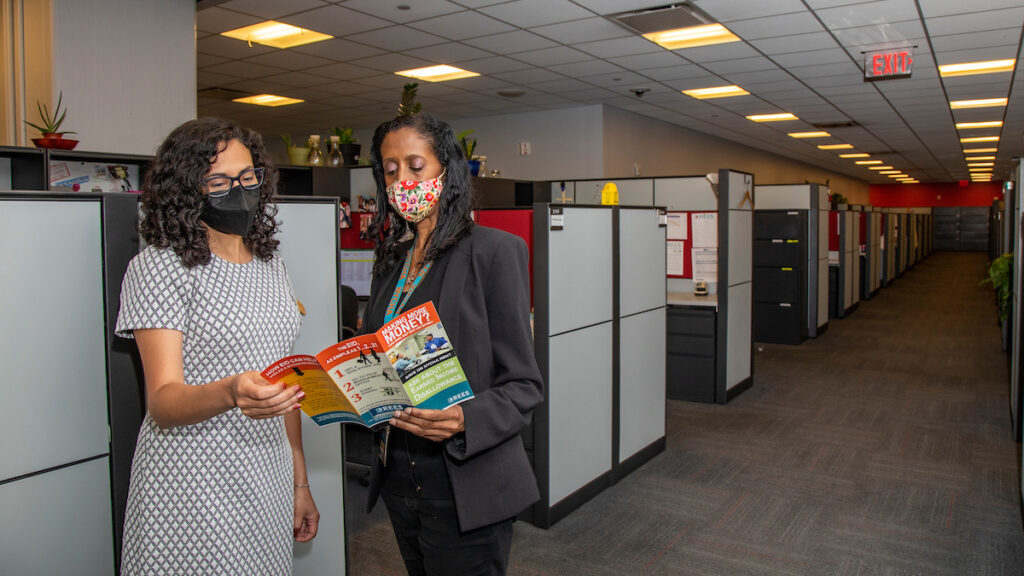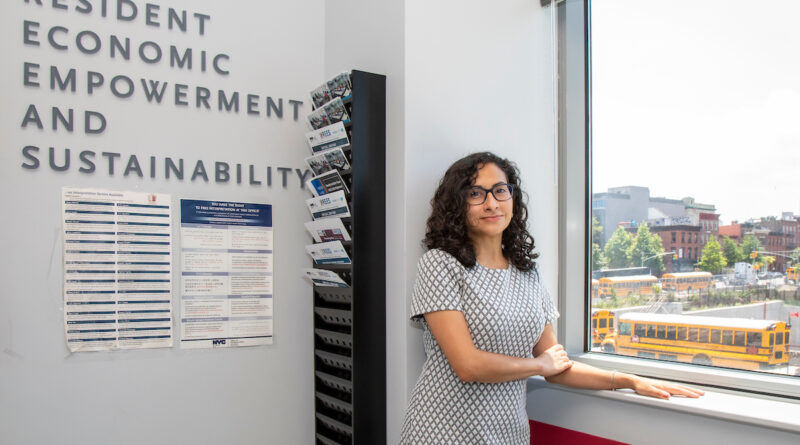Meet Shanna Castillo – Senior Director of NYCHA’s REES Office
For almost a decade, Shanna Castillo and her team have worked to continue to develop NYCHA’s Office of Resident Economic Empowerment & Sustainability (REES) — which connects residents to employment and career advancement, adult education and vocational training, financial empowerment, and business development — into a model of how partnership and access to opportunities can empower and uplift New Yorkers.
As Senior Director for REES, which is stationed at 787 Atlantic Avenue in Brooklyn, Ms. Castillo manages a team of over 50 people. As Senior Director she is responsible for developing programs, policies, and collaborations – both internal and external to NYCHA – to help residents increase their income and assets. REES works with more than 80 partners throughout New York City to provide residents with economic opportunity services, such as job training and adult education programs in their area and citywide.
“What I love most about my job is that we get to be innovative and creative; there’s very much an entrepreneurial spirit at REES,” she said. “We’ve built the department and its programming for over a decade now, so it’s become recognized and respected in the economic opportunity world. Other organizations now recognize the importance of having a deliberate focus on NYCHA residents when designing economic opportunity programming and interventions, allowing us to be more effective in our work serving public housing and Section 8 residents. We get to work with external funders and other thought partners to see what we can create together that would be most beneficial to residents and address the opportunities or services they’re looking for (while also considering industry trends).”

Ms. Castillo began her NYCHA career in 2012 as an assistant director of intake and outreach and has worked in various roles in REES throughout the years, becoming director in 2015.
Before joining NYCHA, she worked at Urban Upbound (known as East River Development Alliance when she was employed there), a nonprofit organization that serves public housing residents by providing them with tools and programming for economic empowerment and breaking the cycle of poverty. She was instrumental in helping the organization create and build its workforce development program.
Before joining Urban Upbound, Ms. Castillo worked in human resources – but she found herself gravitating towards directly helping employees (rather than focusing on policy and procedures).
“I grew up in housing and through my own life journey around career development, I saw how difficult it was to do it on your own, and that’s what made me step into the field of workforce,” she said. As a child, Ms. Castillo lived at Carey Gardens and Baruch Houses. “I’m grateful for Urban Upbound for providing me with that initial opportunity to move from doing human resources work in the for-profit sector to non-profit workforce development.”
In addition to helping NYCHA residents empower themselves, Ms. Castillo practices what she preaches and continues to advance her own skills so that she can better serve residents.
In 2020, she graduated from the inaugural class of the competitive Workforce Systems Leadership Program from Coro New York and the Workforce Professionals Training Institute, which helps prepare senior leaders to respond to the changing workforce development sector, lead innovative practices, and improve services for low-income New Yorkers in search of employment and career advancement. In 2015, she graduated from the City’s Leadership Institute, which helps to prepare outstanding mid-level agency executives to lead organizational change initiatives.
“I always keep in mind that REES has a tremendous responsibility and opportunity to really support residents, and keeping that at the forefront of our team’s minds helps us think creatively, take risks, and not be afraid of doing hard work,” she said. “It is important to understand people and communities where they are, value them, and take their lead. This way, we’re able to drive the dial forward in the types of work we’re doing, not just in REES, but in the Housing Authority as an organization.”







